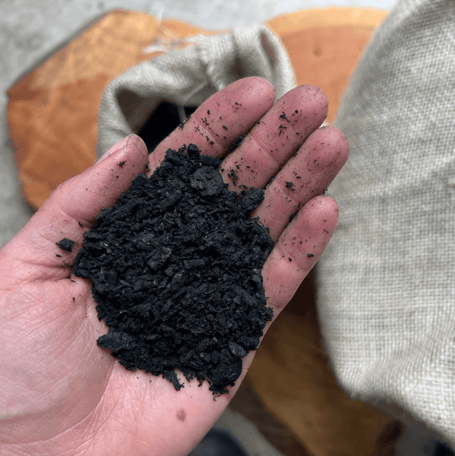A new workshop is coming to Hay Castle in May, aiming to inform people on how to make biochar.
Hay Regenerative Soils CIC will host a live demo and talk led by Lottie Hawkins, PhD student and founder of Earthly Biochar, a company improving soil health. It will be in Hay Castle on the 20th of May, from 12pm - 2pm.
The informative afternoon event will combine a scientific seminar and offer participants both the theory and practical knowledge behind one of today’s most promising tools for regenerative agriculture. This session is ideal for growers, gardeners, composters, and anyone curious about sustainable climate solutions and regenerative practices.
Biochar, carbonised organic material created under low-oxygen, high-temperature conditions, has ancient roots in the Amazon basin, where Indigenous communities produced fertile “terra preta” soils that continue to sustain agriculture centuries later. Today, biochar is being rediscovered as a Negative Emission Technology (NET) officially recognised by the Intergovernmental Panel on Climate Change (IPCC), with proven benefits for both growers and the global climate.
Biochar production locks carbon into a crystalline porous structure, preventing it from degrading or releasing CO2 for hundreds of years, a process known as carbon sequestration. While wood waste sent to landfill or incineration releases 100% of its carbon, wood transformed into biochar offers a long-term solution, reducing greenhouse gas emissions and contributing to climate change mitigation. For soils, biochar’s exceptional surface area and porous qualities improve water retention, nutrient cycling, and microbial activity. Properly ‘charged’ or ‘inoculated’ with nutrients and microbes, biochar has been shown to increase plant growth and health by 10–200%, depending on soil conditions, while reducing the need for water and fertiliser inputs by 15–40%.
Tickets can be booked directly through the Hay Castle Trust website. Spaces are limited, so early booking is recommended. Join us to learn, experiment, and be inspired, and discover how ancient agricultural knowledge can meet today’s climate challenges head-on.





Comments
This article has no comments yet. Be the first to leave a comment.